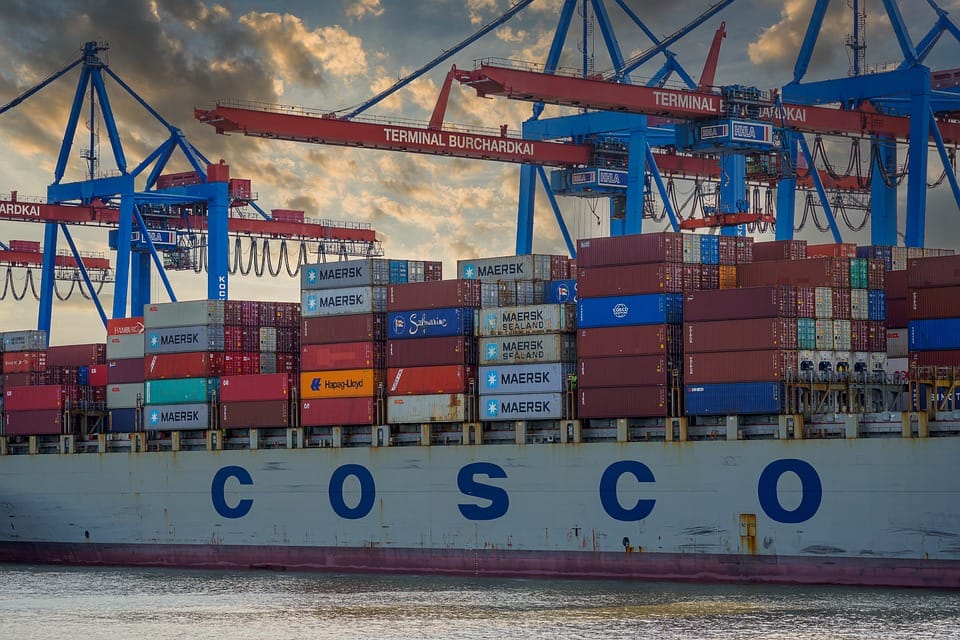From Theory to Practice: Implementing Blockchain Technology in Supply Chain Management
The world of supply chain management has been evolving over the years, with the introduction of new technologies aimed at streamlining processes, enhancing transparency, and improving efficiency. One of the most promising innovations in this space is blockchain technology. With its distributed ledger and cryptographic capabilities, blockchain has the potential to revolutionize the way companies manage their supply chains. In this article, we’ll explore the concept of blockchain technology, its benefits, and how it can be applied in supply chain management, from theory to practice.
What is Blockchain Technology?
Blockchain, a decentralized and distributed ledger technology, was first introduced by Satoshi Nakamoto in 2008 as the foundation for the cryptocurrency Bitcoin. Simply put, a blockchain is a chain of blocks, where each block contains a set of transactions or data. These blocks are linked together through a unique code, known as a "hash," which creates an unalterable record.
The key characteristics of blockchain technology that make it attractive for supply chain management are:
- Decentralized: Blockchain is a decentralized technology, meaning that no single entity controls it. This ensures that all transactions are transparent, secure, and tamper-proof.
- Immutable: The ledger is immutable, making it difficult to alter or delete data once it has been recorded.
- Distributed: The blockchain is distributed across a network of nodes, providing redundancy and fault-tolerance.
- Cryptographic: Transactions are secured through advanced mathematical algorithms, ensuring the authenticity and integrity of the data.
Benefits of Blockchain in Supply Chain Management
By implementing blockchain technology in supply chain management, companies can enjoy several benefits, including:
- Improved Transparency: Blockchain provides a single, shared platform where all stakeholders can access information in real-time, ensuring transparency and visibility throughout the supply chain.
- Increased Efficiency: With automated processes and reduced manual errors, blockchain can streamline operations, increase efficiency, and reduce costs.
- Enhanced Security: The built-in security features of blockchain prevent tampering, hacking, and data manipulation, ensuring the integrity of the data.
- Better Compliance: Blockchain’s transparent and auditable nature helps companies comply with regulatory requirements and industry standards.
- Reduced Counterfeiting: The immutability of blockchain ensures that products can be tracked and verified, reducing the risk of counterfeiting and product tampering.
How to Implement Blockchain in Supply Chain Management
While the benefits of blockchain in supply chain management are numerous, the implementation process can be complex and challenging. Here are some steps to consider when implementing blockchain in your supply chain:
- Identify the Right Use Cases: Start by identifying areas where blockchain can add the most value, such as tracking inventory, managing inventory, or verifying product authenticity.
- Assemble a Team: Bring together experts from various departments, including IT, logistics, and operations, to ensure a thorough understanding of the implementation process.
- Choose a Blockchain Platform: Select a suitable blockchain platform that integrates with your existing systems and meets the specific needs of your supply chain.
- Design the Blockchain Ledger: Create a clear understanding of what data will be stored on the blockchain, how it will be structured, and how it will be updated.
- Develop a Testing Plan: Develop a comprehensive testing plan to ensure that the blockchain implementation is functioning as expected and identify any issues before going live.
Real-World Examples of Blockchain in Supply Chain Management
While still in its early stages, blockchain has already started to make an impact on supply chain management. Here are a few examples of companies that have successfully implemented blockchain in their supply chain:
- Maersk: The world’s largest container shipping company, Maersk, has partnered with IBM to develop a blockchain-based platform to track and verify shipments.
- Nestle: The food and beverage giant has implemented a blockchain-based platform to track coffee beans from farm to cup.
- Unilever: The consumer goods company has used blockchain to track and verify the authenticity of palm oil, a key ingredient in many of its products.
Conclusion
Blockchain technology has the potential to revolutionize the way companies manage their supply chains. By providing a secure, transparent, and immutable ledger, blockchain can improve efficiency, reduce costs, and increase transparency. While the implementation process can be complex, the benefits of blockchain in supply chain management are undeniable. As the technology continues to evolve, we can expect to see even more innovative applications and real-world examples of its impact on the industry.
Frequently Asked Questions
Q: Is blockchain just for cryptocurrency?
A: No, while blockchain was initially introduced as the foundation for Bitcoin, its applications extend far beyond cryptocurrency. Blockchains can be used to track and verify any type of data, including supply chain information.
Q: Is blockchain secure?
A: Yes, blockchain’s decentralized and distributed nature, combined with cryptographic techniques, ensures the security and integrity of the data.
Q: Can blockchain be used in supply chain management?
A: Absolutely, blockchain can be used to track and verify shipments, inventory, and product authenticity, making it an ideal solution for supply chain management.
Q: How does blockchain improve supply chain management?
A: Blockchain improves supply chain management by providing a single, shared platform for real-time information sharing, reducing manual errors, and ensuring the integrity of the data.
Q: Is blockchain difficult to implement?
A: While the concept of blockchain is simple, the implementation process can be complex and requires careful planning, design, and testing.
Q: What are the limitations of blockchain in supply chain management?
A: While blockchain offers many benefits, it is not without its limitations. Some of the challenges include scalability, interoperability, and regulatory compliance.
Q: What is the future of blockchain in supply chain management?
A: As the technology continues to evolve, we can expect to see even more innovative applications of blockchain in supply chain management, including increased adoption, improved scalability, and further exploration of its use cases.

Leave a Reply